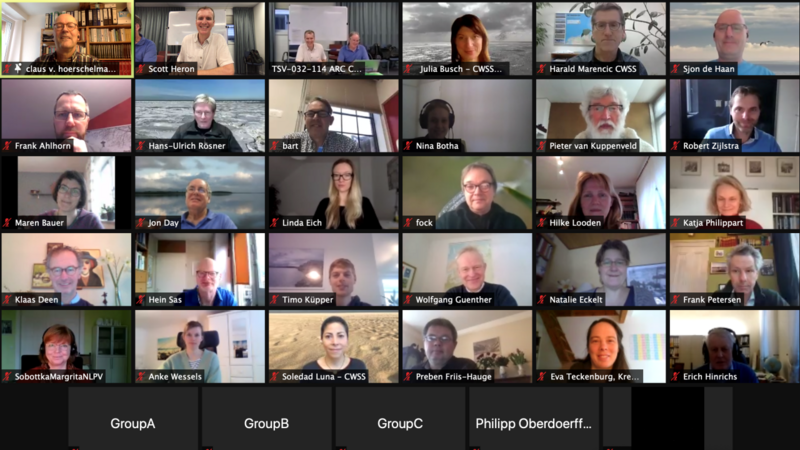Process to assess climate vulnerability of the Wadden Sea World Heritage concludes 2nd phase

On 16-17 February 2021, the second phase of an innovative rapid assessment, the Climate Vulnerability Index (CVI), was conducted for the Wadden Sea World Heritage property. The online workshop on community vulnerability was co-organised by the Common Wadden Sea Secretariat and facilitated by the CVI developers, Jon Day and Dr Scott Heron of James Cook University, based in Australia. Approximately 30 participants from Denmark, Germany and the Netherlands with diverse expertise including government agencies, nature conservation, science and administration took part. The workshop was the second for the Wadden Sea – the first workshop was conducted in February 2020 and assessed the vulnerability of the Wadden Sea’s OUV.
“For the first time we assessed how economics, society and culture depend on and may respond to changes in the OUV”, says Julia Busch, CWSS Programme Officer and workshop co-organiser. “The contributions of participants have shown the importance of interdisciplinary expertise to address climate change. It has also shown that there is an interest and need to share and improve measures to address the vulnerability due to climate change and address the knowledge gaps that we have revealed through the CVI process.”
In this workshop, the CVI rapid assessment approach assessed the community vulnerability to the loss of World Heritage values resulting from climate change by considering the economic, social and cultural (ESC) dependencies as well as their adaptive capacity. The dependencies were assessed against a 2050 climate scenario taken from the first workshop and considered for the key sectors for the Wadden Sea Region: tourism, shipping, fishery, energy, agriculture, and coastal protection. The process was very helpful to understand how to deal with the complexity of the World Heritage site, and to better integrate economic, social and cultural aspects in the climate change adaptation management. “The CVI is a rapid assessment and its application is one step – one piece- in a process that certainly needs more discussion and consideration in future” says Busch.
It is important to note that there are also expected to be direct impacts of climate change, beyond the World Heritage values, upon economic sectors and the society. The diverse group of participants brought a range of perspectives on the components of economic and societal vulnerability. The results of the community vulnerability workshop will be made available for the Wadden Sea Board in due time
With the CVI method still in a pilot phase, Jon Day said the experience in conducting this approach for the Wadden Sea very useful: “The CVI was developed to be a process applicable for all types of World Heritage sites. The Wadden Sea is probably one of the most complex sites worldwide and a true test to see how the method will perform across the diverse array of World Heritage.”
